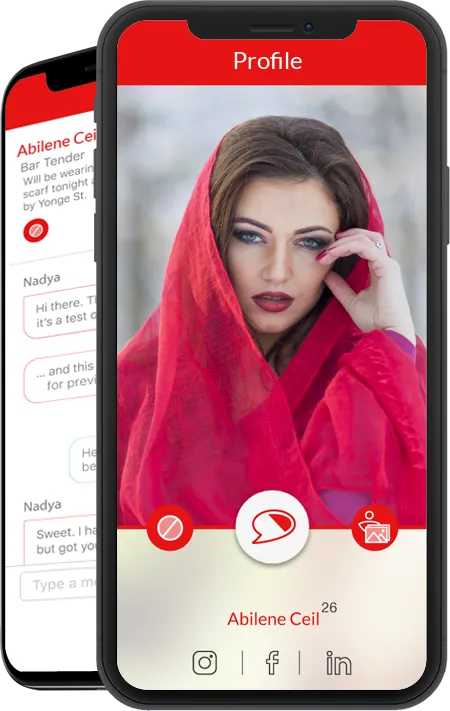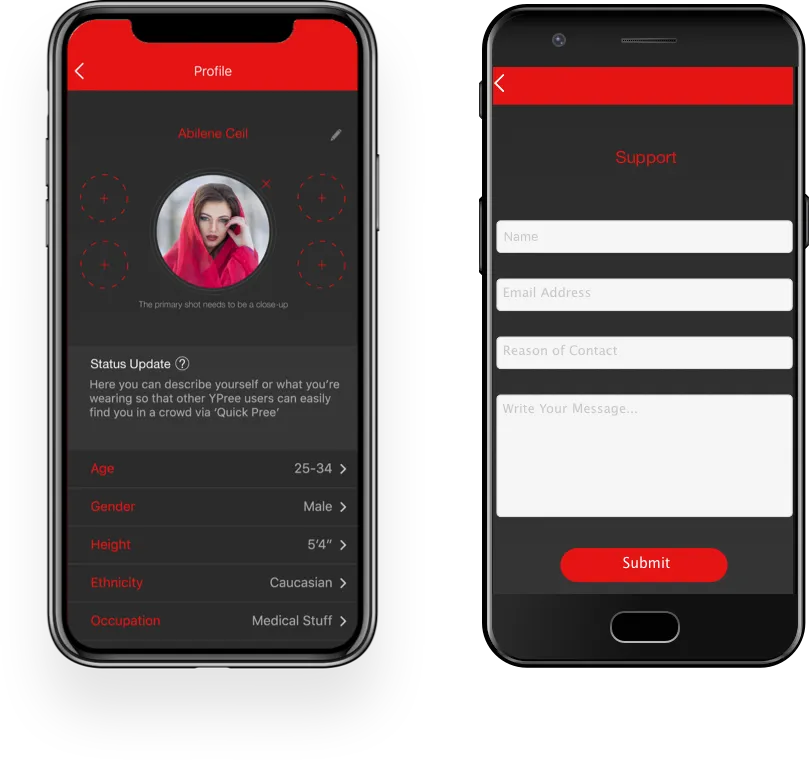
CLIENT
yPree
INDUSTRY
Media, Publishing & Entertainment
FEATURES
Bluetooth-Based Local Search
GPS Fallback
Live Chatting
TECHNOLOGY STACK
Corey Spencer was an entrepreneur with a clever idea for a smartphone dating app—one that prioritized finding nearby users, rather than those on the other side of town. While this may sound like something every dating site does, the reality is that most profile-based dating apps considered location a secondary feature at the time.
What’s more? Other apps on the market weren’t very effective at pinpointing location. They often determined where a user was based on their IP address, leading to location estimates that were off by hundreds of meters or more. Other apps tried to use GPS to pinpoint location, but GPS was notoriously inaccurate.
In other words, the standard technology wouldn’t work well for connecting with those who were truly in the vicinity. And that’s what inspired Corey to launch his own, fully self-funded startup called yPree.
The dating app industry is a powerful one, expected to pass $8.4 billion in revenue by 2024. Corey hoped to enter that market with a unique product. He just needed the right tech partners to bring it to life, and that’s what led him to Net Solutions.
He reached out to a number of developers to discover how they might be able to help him build a powerful app for both iOS and Android devices, but he struggled to find someone fully qualified to support the endeavor.
When he finally spoke with Net Solutions, however, he was pleasantly surprised. Not only did this team in India grasp the concept quickly—they also asked probing questions to determine the feasibility of certain features and the usability of proposed workflows.

The Net Solutions team didn’t want to see Corey waste his money on the idea if existing technology couldn’t fully support it, so they recommended beginning with a Proof-of-Concept (PoC). The PoC consisted of Bluetooth-to-Bluetooth communications between smartphone devices, and it worked exactly as everyone hoped it would.
At its core, the app would work like any other dating app. Users create profiles, specify their search criteria, and take their profiles live. It’s yPree’s “Local Find” feature that made it special.
Once a profile went live, the app tried to locate other Bluetooth enabled devices running yPree, identifying other users open for connection. If the app does not find any local devices, it falls back on GPS to find the nearest yPree users.
A user then sends a request to connect, and if the other user accepts, yPree launches its chat feature powered by Quickblox. If the chat turns abusive, the user can report the violation. Staff would then review the violation and remove the offender if the messages violate their terms of service.
The user apps worked smoothly on both Android and iOS devices, while admins conducted platform management through a Django-based web app.

The app received many positive reviews, and users enjoyed connecting with locals from an app that prioritized location.
Eventually, Corey decided there was greater opportunity in employing the underlying technology for another purpose.
Today, yPree allows users to chat, share photos, and quickly exchange other files with any nearby user—even if they don’t have that user’s contact information stored in their phones.
Net Solutions’ vigilance in both validating the concept and building a well-designed app made it possible for Corey to follow his startup dreams and make his vision a reality.
Net Solutions worked with Corey Spencer to help build the yPree iOS and Android apps—a unique app that prioritized connecting with nearby users. From validation to launch, Net Solutions worked with Corey to:
The app worked smoothly on both devices and included a chat feature powered by Quickblox and web-based platform management supported by Django.
11601 Wilshire Blvd
5th Floor
Los Angeles, CA 90025
USA
+1 (305) 767-3821
101 Avenue of the Americas,
8th Floor, New York City,
New York, 10013
USA
+1 (305) 767-3821
111 Queen Street
East South Building
Suite 450, Toronto,
ON M5C 1S2 Canada
+1 (416) 720-1790
6th Floor
9 Appold Street
London, EC2A 2AP
UK
+44 (20) 3807-3803
Site no. 15, Rajiv Gandhi
Chandigarh Technology Park,
Chandigarh 160101
India
+91 172 4315000
Before you go, learn how Al boosts retention.
Power your products with Al-driven experiences.
VP, AI & SOFTWARE PRODUCTS PROJECT MANAGEMENT INSTITUTE
CHIEF TECHNOLOGY OFFICER NET SOLUTIONS